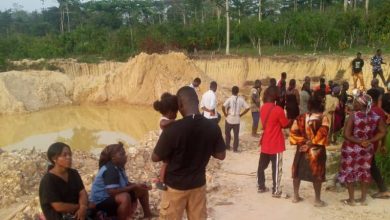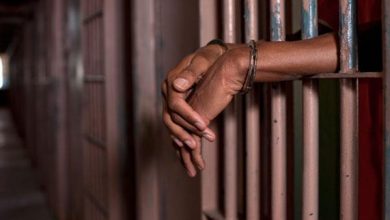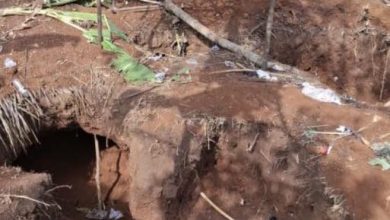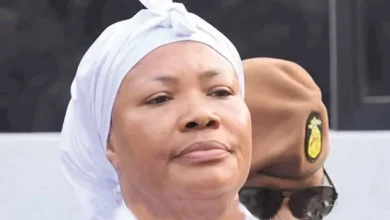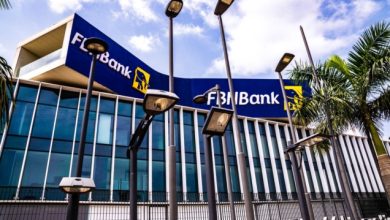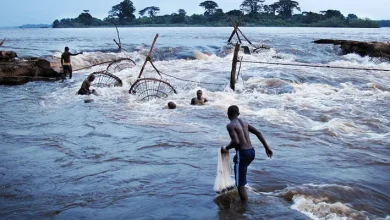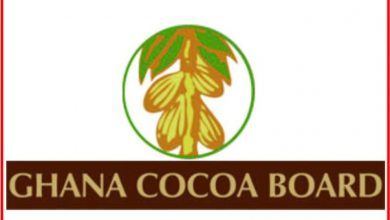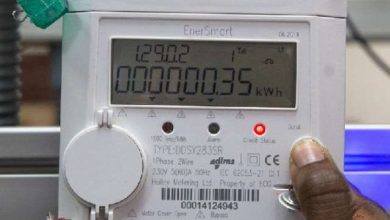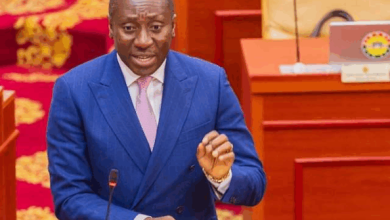Latest casualty: Firefighting hits a snag – Galamsey devastates water sources
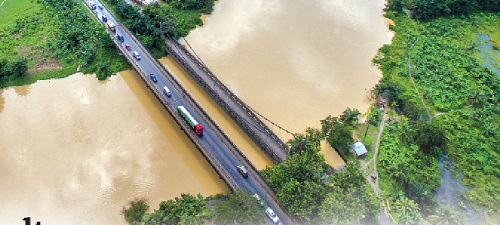
Firefighting operations in parts of the country are the latest casualty of illegal mining, commonly called galamsey locally, firefighting officials have lamented.
They say the consequences of galamsey have gone beyond merely polluting water bodies and sources, and now impacting water availability in the right volumes for fire emergencies.
The Western Regional Fire Command, for instance, says low pressure in water service lines to its hydrants or points of replenishment is threatening fire service operations.
It said that had arisen from illegal mining activities, and warned of dire consequences for firefighting operations if galamsey was not stopped or treated as a national emergency.
The Fire Command said the points of collection of raw water from rivers in emergency cases were heavily silted and had a high turbidity level that had become a danger to firefighting, lives and property in the event of an emergency.
It said the Fire Service remained the most impacted institution due to the unending illegal mining activities.
“In the Western Region, we have the Pra, Ankobrah and Tano rivers and other tributaries that make it easy for us to source water to save situations, but the problem now is that galamsey is making it impossible for us,” the Regional Fire Commander, Fredrick Ohemeng, said.
During an interaction with the media in Takoradi after this year’s Fire Week Celebration, Mr Ohemeng said the service relied on Ghana Water Company sources and raw water bodies in non-urban areas for replenishment to carry out its operations.
“Now, we cannot be sure due to the high level of silt and the poor turbidity. Even in the cities where we have points of collection, the pressure is low due to the inadequate water at the intake point of Ghana Water Company,” he said.
The Fire Week Celebration is an annual event instituted by the Ghana National Fire Service to sensitise the public to fire issues and safety precautions to reduce the chances of fire disasters.
Graphic dialogue
The consequences of galamsey on firefighting operations will be one of the focus areas at the two-day national dialogue being organised in Accra by the Graphic Communications Group Limited.
Indeed, policymakers, experts and other stakeholders in the natural resource sector will converge on Accra on Thursday and Friday for the dialogue, intended to promote the sustainable management of the country’s natural resources.
It is being held in partnership with the Ministry of Lands and Natural Resources to explore ways of tackling challenges confronting the land, mining and forestry sectors to ensure optimum use of those resources.
Dubbed: “Harnessing our natural resources responsibly for our sustainable collective good”, the dialogue will also look at innovative ways of protecting the environment from destruction.
The dialogue is being held at a time the government is implementing a number of interventions to help deal with excesses in the land, forestry and mining sectors.
For instance, although the mining sector remains the major backbone of Ghana’s economy, contributing significantly to the gross domestic product (GDP), the activities of illegal miners remain an albatross that is eroding the gains.
Since 2017, the government has implemented a number of interventions, including a ban on all forms of small-scale mining for almost two years, the deployment of military operations such as Operation Vanguard and Operation Halt, the revision of the mining laws, the introduction of community mining schemes (CMS) and deployment of speed boats for monitoring illegal mining activities on river bodies.
In the forest sub-sector, the issue of illegal logging, illegal mining, expansionist agriculture and wildfires are fuelling deforestation and forest degradation.
A recent report by the Forestry Commission on the state of the nation’s forest has revealed that 4,726 hectares of the country’s forest reserves have been destroyed by illegal mining activities.
In the land sub-sector, although a new land act has been enacted, there are still teething issues such as multiple sale of land, delays in land title registration, activities of land guards and land tenure system that affect effective land administration.
It is expected that the dialogue would be centred around some of these issues, with the aim of proffering workable solutions to the challenges.
Risky situation
Mr Ohemeng warned that the situation was not only risky, but also serious and a threat to the public.
“The prevailing situation is that the pressure in the lines is not the best because Ghana Water Company is not getting the required volume of raw water to process for public consumption and for our activities in case of a fire outbreak,” he added.
“The low pressure in itself is a challenge, hence the need for the public to know that the extreme negative effect of illegal mining is not far from us in the urban areas or cities; it has an effect on our operations and a threat to public safety.
“Even the chemical content of the water, aside from the poor turbidity, is also having a negative effect on our equipment,” he said.
Public view
A resident of Takoradi, A. Korshe Zorwoonoo, said the time had come for Ghanaians to agree that enough was enough and join the fight against illegal mining since its threats were unlimited.
“If there is fire in the city and the fire service cannot get water to attend to the disaster, who are we going to blame, the Fire Service, Ghana Water Company, ourselves or the galamseyers?” he asked.
“Now we have the fire service not getting the needed (water) pressure to fight fire and save lives, then it is obvious that we are not safe in the city; the threat of illegal mining is closer to us than we thought,” he said.
Beyond degradation
Others said they thought the threat was limited to the unavailability of potable water in the localities.
“If today the Fire Service is being affected, then we are not safe,” a lady trader said.
Mr Kwesi Dadzie, also a resident, said: “We blame the Fire Service for arriving late on fire scenes, but if what they are saying is the situation, then we are in trouble. Galamsey is contaminating aquatic life, underground water, root foods and threatening water bodies, and we are looking on unconcerned.”
He said beyond the known effects of degradation and pollution, the threat is now greater, and “we should act now or have ourselves to blame”.
Source: Graphic Online

